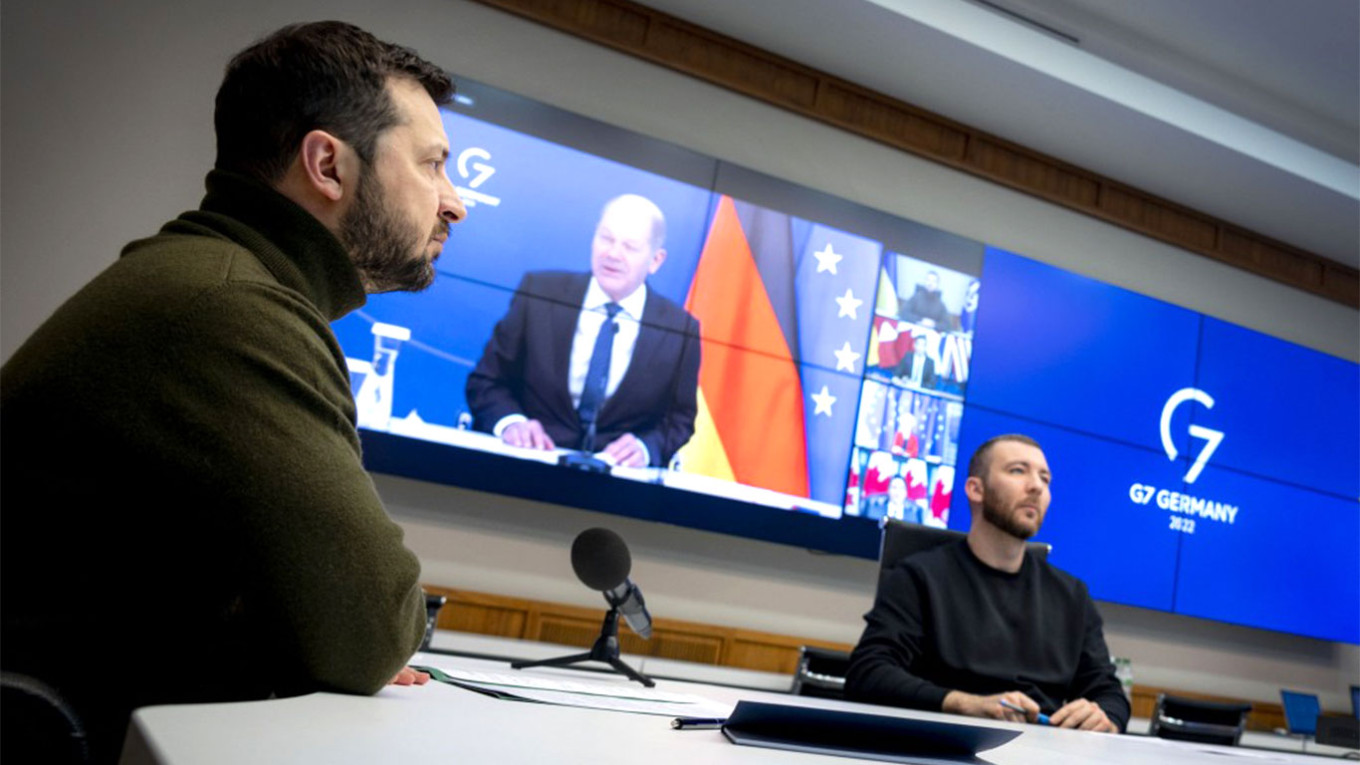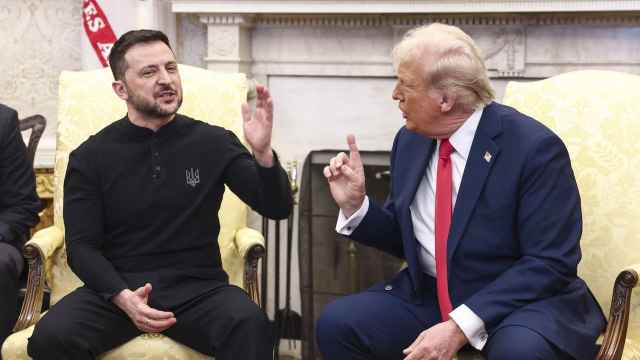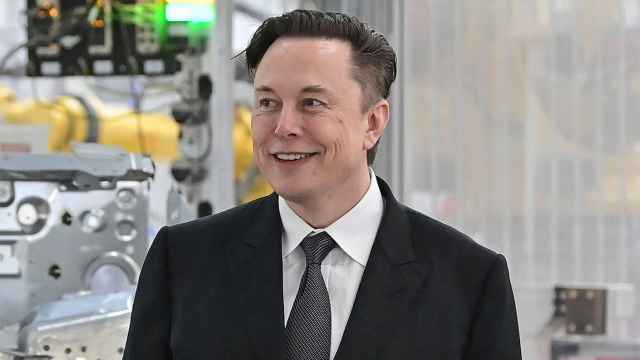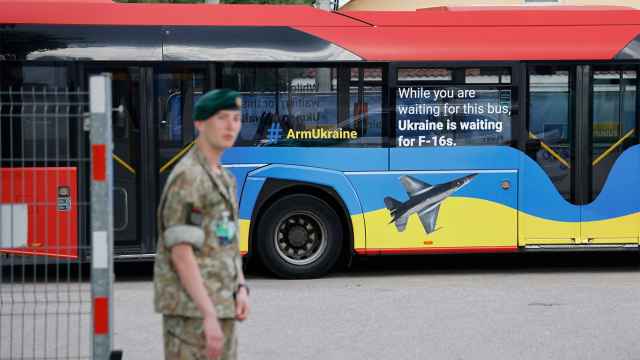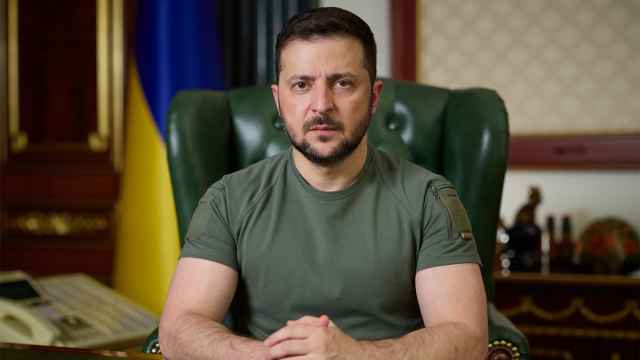Ukraine's Western allies pledged an additional one billion euros ($1.1 billion) in emergency winter aid on Tuesday, responding to pleas from President Volodymyr Zelensky to help the country withstand Russia's onslaught against its energy grid.
Around 70 countries and international organizations gathered in Paris for a meeting aimed at enabling Ukrainians "to get through this winter," said French President Emmanuel Macron.
In a video message, Zelensky said Ukraine needed assistance worth around 800 million euros in the short term for its battered energy sector.
"Of course it is a very high amount, but the cost is less than the cost of a potential blackout," Zelensky told the conference via video link.
Pledges for the energy sector comprised 400 million euros of the funds raised on Tuesday, France's Foreign Minister Catherine Colonna said.
Ukraine needs spare parts for repairs, high-capacity generators, extra gas as well as increased electricity imports, Zelensky said.
"Generators have become as necessary as armored vehicles and bullet-proof jackets," he said.
Ukrainian Prime Minister Denys Shmyhal said 40 to 50% of the country's grid was out of action because of Russia's strikes.
Many areas of the country have power for only a few hours a day.
Another 1.5 million people were left without power in southern Odesa over the weekend after Russian drone attacks.
"They want to put us into darkness and it will fail, thanks to our partners all over the world," Shmygal told delegates.
Bridge attack
On the battlefield Tuesday, local authorities in the Russian-occupied city of Melitopol said pro-Kyiv forces had used explosives to damage a strategic bridge.
Melitopol is an important transport hub for Russian forces in the region of Zaporizhzhia and is key for Ukraine's hopes of liberating the south of the country.
The bridge in the eastern suburbs "was damaged by terrorists," Vladimir Rogov, a Moscow-installed regional official, said on the Telegram messaging app.
He did not specify the extent of the damage, but images on his social media accounts showed that a middle section of the bridge had collapsed.
Elsewhere on Tuesday, Belarus held a surprise inspection of its armed forces, raising fears of a possible escalation in the conflict.
Belarus is a close ally of Moscow, but Belarusian leader Alexander Lukashenko has repeatedly said he does not plan to send Belarusian troops to Ukraine.
Ukrainian PM Shmyhal also said Tuesday that the UN nuclear watchdog IAEA had agreed to dispatch permanent teams to monitor the country's nuclear plants.
They are expected to take up positions in the Russian-controlled Zaporizhzhia plant, a hotspot of fighting, which has been a source of global concern in recent months.
A deal to de-militarize the site, which would see both sides withdraw forces, has proved impossible so far despite international diplomatic efforts.
'War crimes'
Tuesday's conference in Paris, titled "Standing with the Ukraine People," also saw the launch of a new so-called Paris Mechanism to coordinate civilian aid to Ukraine.
The digital platform, announced by G7 leaders on Monday, will enable Ukraine to list its requirements and allow international donors to coordinate their responses in real time.
"A large number of countries will use this mechanism — all the members to the European Union, but it will go beyond to other partners, including non-European partners," Colonna told reporters.
A similar platform exists for military aid, which is coordinated via meetings of Ukraine's Western allies at the U.S.-run Ramstein military base in Germany.
Macron hosted Tuesday's conference alongside Zelensky's wife Olena, giving the French leader an opportunity to reaffirm his support for Kyiv.
He condemned Russia's "cynical" and "cowardly" attacks on Ukrainian civilian infrastructure.
"These strikes... which Russia openly admits are designed to break the resistance of the Ukrainian people, are war crimes," Macron said in his opening address.
"They violate without any doubt the most basic principles of humanitarian law," he said.
"These acts are intolerable and will not go unpunished."
The French president has riled some of his allies in Kyiv in the past, most notably in June when he said "we must not humiliate Russia."
On Dec. 3, he also called for Russia to be offered "security guarantees" at the end of the war, drawing criticism from some Ukrainian and eastern European politicians who believe the focus should be on pushing back Moscow's forces militarily.
Mine clearance
In a video address to the New Zealand parliament on Wednesday, Zelensky appealed to Wellington — whose military has extensive experience in mine clearing — for long-term help in clearing mines in war-ravaged Ukraine.
"As of now, 174,000 square kilometers (67,000 square miles) of Ukrainian territory are contaminated with mines and unexploded ordnance," Zelensky said, calling Russia's nearly year-old invasion as an "ecocide" that would have a lasting impact.
"There is no real peace for any child who can die from a hidden Russian antipersonnel mine."
In Russia, the Kremlin announced that Putin will not hold his annual end-of-year press conference this year, a break with tradition.
Kremlin spokesman Dmitry Peskov gave no reason for not holding the event that Putin has hosted almost every year he has been in power since 2000.
A Message from The Moscow Times:
Dear readers,
We are facing unprecedented challenges. Russia's Prosecutor General's Office has designated The Moscow Times as an "undesirable" organization, criminalizing our work and putting our staff at risk of prosecution. This follows our earlier unjust labeling as a "foreign agent."
These actions are direct attempts to silence independent journalism in Russia. The authorities claim our work "discredits the decisions of the Russian leadership." We see things differently: we strive to provide accurate, unbiased reporting on Russia.
We, the journalists of The Moscow Times, refuse to be silenced. But to continue our work, we need your help.
Your support, no matter how small, makes a world of difference. If you can, please support us monthly starting from just $2. It's quick to set up, and every contribution makes a significant impact.
By supporting The Moscow Times, you're defending open, independent journalism in the face of repression. Thank you for standing with us.
Remind me later.


